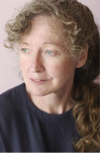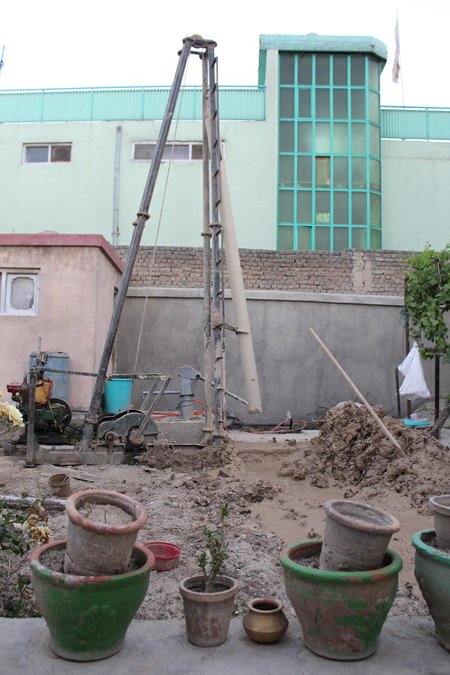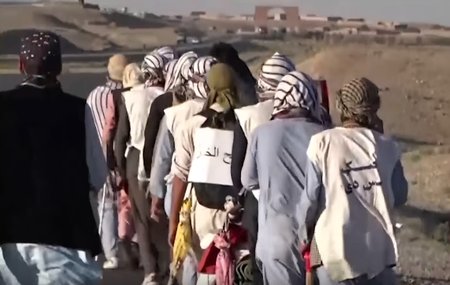Digging Deeper in Afhanistan
TRANSCEND MEMBERS, 11 Jun 2018
Kathy Kelly – TRANSCEND Media Service
5 Jun 2018 – Here in Kabul in early June, outside the home of several Afghan Peace Volunteers, a large drilling machine is parked on what was once a lovely garden. To this now muddy patch, workers will soon arrive for another noisy, dusty day of digging for water. The well dried up a week ago. As of today, the household has no water.
Ongoing battles between militants, government forces, and international allies have destroyed much of Kabul’s water infrastructure, forcing people to drill their own wells.
Across Kabul, numerous households face similar water shortages. With an average annual rainfall of just fourteen inches, Kabul’s water table has been falling each year. The current population, estimated around 4.5 million, is expected to reach 9 million by 2050. The estimated groundwater potential is enough to supply only 2 million inhabitants with water.
Alarming reports say that drought now afflicts twenty-one of Afghanistan’s thirty-four provinces.
Rural families in drought-stricken areas watch their crops fail and their livestock die of dehydration. In desperation, they flee to urban areas, including Kabul, where they often must live in squalid, sprawling refugee camps. In the city, an already inadequate sewage and sanitation system, battered by years of war, cannot support the soaring population rise.
Droughts in other countries have led to violent clashes and civil wars. It’s difficult to imagine that Afghanistan, already burdened by forty years of war, will escape eventual water wars.
The most sophisticated and heavily armed warring party in Afghanistan is the U.S. military. Despite spending hundreds of billions of dollars on non-military aid to Afghanistan, the United States has done little to improve Afghanistan’s infrastructure or alleviate its alarming water crisis. President Donald Trump’s interest in what’s happening under the ground in Afghanistan is focused exclusively on the U.S. capacity to extract Afghanistan’s mineral wealth, estimated to be worth trillions of dollars.
Ordinary Afghans could be forgiven for feeling paralyzed and defeated by controlling elites who ignore their most basic human needs. Yet every day, Afghan communities reject continued war and call for peace.
On May 13, a single-file procession of Pashto men started off on a 400-mile trek along dusty roads from Helmand to Kabul, to call for the Afghan government and the warring parties to end the war.
The participants are asking the Afghan government and militants to stop fighting. They are walking during Ramadan, the month when observant Muslims fast from food and water between sunrise and sundown, becoming ever more mindful of people who lack water and food.
During the past three weeks, throngs of people in cities and towns along their route have shown solidarity with the walkers.
My young Afghan friends show steady resilience in the face of war and destitution. They are growing up with a keen sense of the importance of water for life and the essential need to share resources. They also know the importance of resisting those who menace people with military might.
In this unpredictable time, I can’t help but wonder at Afghan people, scarred by war, facing drought and impoverishment, digging deep into their rich cultural and historical resources to take a lead in efforts to abolish war and build a better world.
_________________________________________________
A version of this article initially appeared in The Progressive.
 Kathy Kelly is a member of the TRANSCEND Network for Peace Development Environment, an American peace activist, pacifist and author, one of the founding members of Voices in the Wilderness, and currently a co-coordinator Voices for Creative Nonviolence. Three times since 2000, she has been nominated for the Nobel Peace Prize. As part of peace teamwork in several countries, she has traveled to Iraq twenty-six times, notably remaining in combat zones during the early days of both US-Iraq wars. Her recent travel has focused on Afghanistan and Gaza, along with domestic protests against U.S. drone policy. She has been arrested more than sixty times at home and abroad, and written of her experiences among targets of U.S. military bombardment and inmates of U.S. prisons. She lives in Chicago. Kathy@vcnv.org
Kathy Kelly is a member of the TRANSCEND Network for Peace Development Environment, an American peace activist, pacifist and author, one of the founding members of Voices in the Wilderness, and currently a co-coordinator Voices for Creative Nonviolence. Three times since 2000, she has been nominated for the Nobel Peace Prize. As part of peace teamwork in several countries, she has traveled to Iraq twenty-six times, notably remaining in combat zones during the early days of both US-Iraq wars. Her recent travel has focused on Afghanistan and Gaza, along with domestic protests against U.S. drone policy. She has been arrested more than sixty times at home and abroad, and written of her experiences among targets of U.S. military bombardment and inmates of U.S. prisons. She lives in Chicago. Kathy@vcnv.org
This article originally appeared on Transcend Media Service (TMS) on 11 Jun 2018.
Anticopyright: Editorials and articles originated on TMS may be freely reprinted, disseminated, translated and used as background material, provided an acknowledgement and link to the source, TMS: Digging Deeper in Afhanistan, is included. Thank you.
If you enjoyed this article, please donate to TMS to join the growing list of TMS Supporters.

This work is licensed under a CC BY-NC 4.0 License.


Though she writes about tragic situations, the inhumanity, ignorance and cruelty of our species, it is always strangely inspiring to read a piece by Kathy Kelly. The reason for that is obvious for anyone slightly familiar with Ms. Kelly’s work and life—she knows whereof she speaks! She has walked the path of the downtrodden, comforted adults and children shuddering during bombing campaigns ravaging homes and lives—in Iraq and elsewhere. She is courageous, and she bears witness and speaks the truths of her witnessing.
Another positive aspect of a Kathy Kelly article is her refusal to engage in the cheap, tawdry partisanship that infects the discourse of politics and culture in the US at this critical juncture in world affairs. She is not about pointing the finger of blame at individuals, at political parties—a too-common practice among those who want to deflect blame and criticism from themselves.
Kathy is far more introspective, and far deeper. She does not divide humanity into good guys and bad guys, “Progressives,” “Republicans,” “Democrats,” “Libertarians,” “Fascists,” “Antifa,” etc. We’re all in the boat together, she reminds us. The same fire-storms ravaging Afghanistan today will ravage our interconnected world tomorrow. How can we do better?